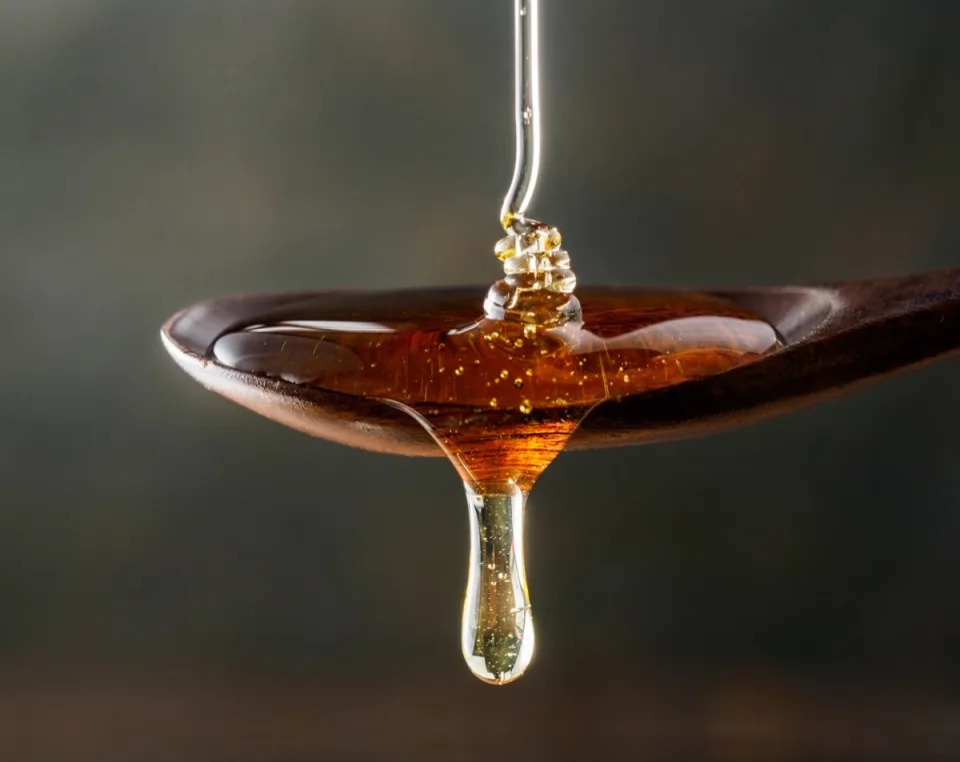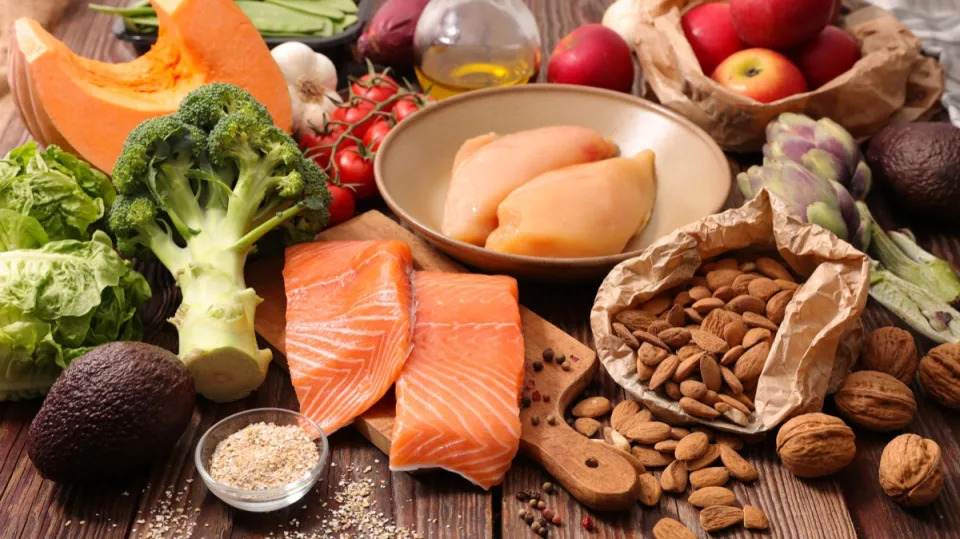Raw Honey Helps Lower Blood Sugar and Cholesterol, New Study Says
When it comes to achieving better heart health, your diet is key. Experts say whole, plant-based foods should dominate your plate, while saturated fat, salt, and sugar should be kept to a minimum.
That said, a new study suggests that not all types of sugar are created equally in the eyes of cardiometabolic impact. The researchers behind the study say that swapping your usual sugar source for raw honey could make the most of your sugar intake by helping to lower your blood sugar and improve your LDL cholesterol.
Read on for more about their fascinating findings—and to discover the one caveat they say changes everything.
READ THIS NEXT: Eating This Type of Cereal for Breakfast Can Slash Diabetes Risk, Experts Say.
Sugar typically raises both blood sugar and cholesterol.

Most people are aware of the damaging effects of saturated fat on LDL—or "bad"—cholesterol levels, but experts say eating a diet containing excess sugar can have a similar effect. As fatty cholesterol deposits accumulate in the walls of the arteries, they can block the flow of blood. Ultimately, this can lead to a range of major medical emergencies, including blood clots, heart attack, or stroke.
READ THIS NEXT: Cancer Survivor Rita Wilson Says She Stopped Eating This After Her Diagnosis.
Raw honey helps lower these cardiometabolic risk factors.

A Nov. 2022 study published in the journal Nutrition Reviews performed a meta-analysis on 18 controlled feeding trials which included over 1,100 largely healthy subjects. The researchers found that raw honey and monofloral honey had a protective effect on the heart, helping to keep blood sugar and LDL cholesterol low.
"These results are surprising, because honey is about 80 percent sugar," Tauseef Khan, a researcher on the study and a research associate in nutritional sciences at the University of Toronto's Temerty Faculty of Medicine, told U of T News. "But honey is also a complex composition of common and rare sugars, proteins, organic acids and other bioactive compounds that very likely have health benefits."
"The word among public health and nutrition experts has long been that 'a sugar is a sugar,'" John Sievenpiper, a principal investigator on the study and a clinician-scientist at Unity Health Toronto, told the same outlet. "These results show that's not the case, and they should give pause to the designation of honey as a free or added sugar in dietary guidelines."
There's just one catch, the researchers say.

There was one crucial caveat in the researchers' findings: The study subjects were mostly healthy individuals who followed nutritious diets. A condition of their participation was that added sugars accounted for less than 10 percent of their daily calories. This suggests that maintaining a low overall sugar intake is still an important factor in maintaining low blood sugar and low LDL cholesterol.
"We're not saying you should start having honey if you currently avoid sugar," Khan told Medical News Today. "The takeaway is more about replacement—if you're using table sugar, syrup, or another sweetener, switching those sugars for honey might lower cardiometabolic risks."
For more health news sent directly to your inbox, sign up for our daily newsletter.
Honey has a range of other potential benefits that other sugars don't.

According to the Mayo Clinic, there may be several additional benefits to adding honey to your diet in the place of other sugar types. Besides being associated with a lower risk of heart disease and cardiometabolic risk factors, honey may also act as a cough suppressant, improve gastrointestinal symptoms, improve neurological disease, and provide topical relief for wounds and burns. Raw honey, which is unpasteurized and tends to be richer in antioxidants, may increase its benefits.
However, some experts note that both pasteurized and raw honey can contain a spore-forming bacterium known as Clostridium botulinum, which can cause intestinal botulism in rare cases.
Speak with your doctor or nutritionist to learn more about how adding raw honey to your diet may impact your health.

